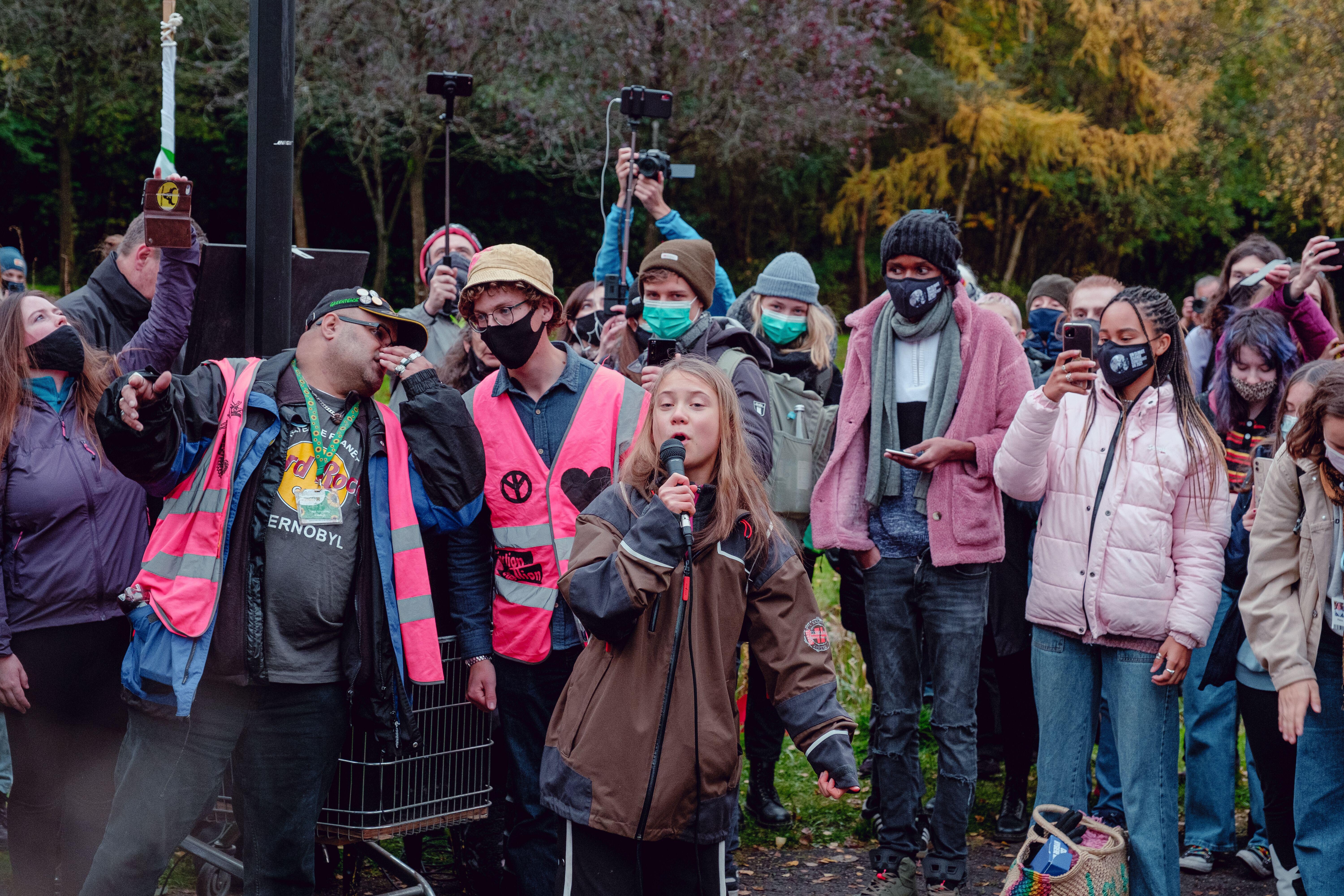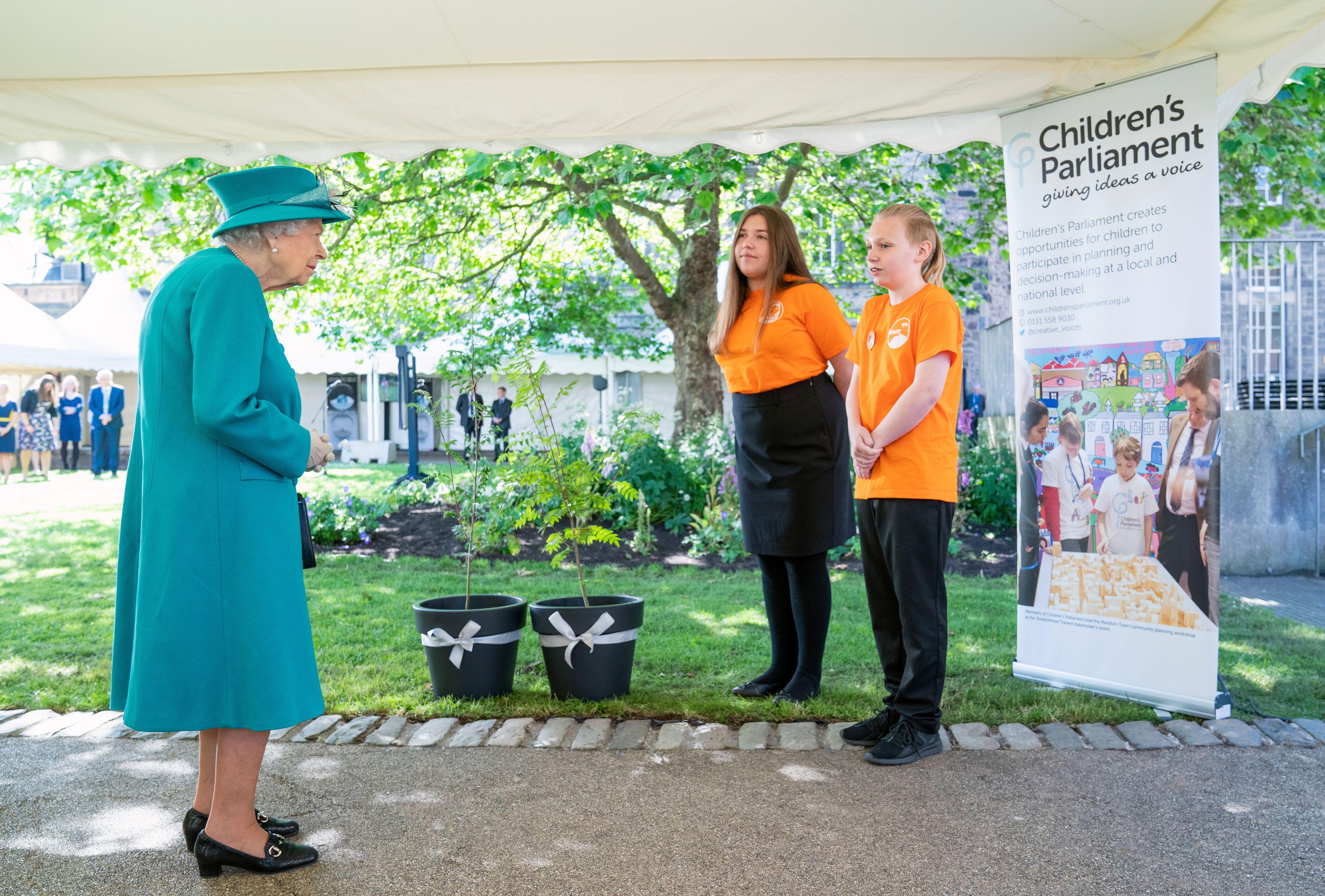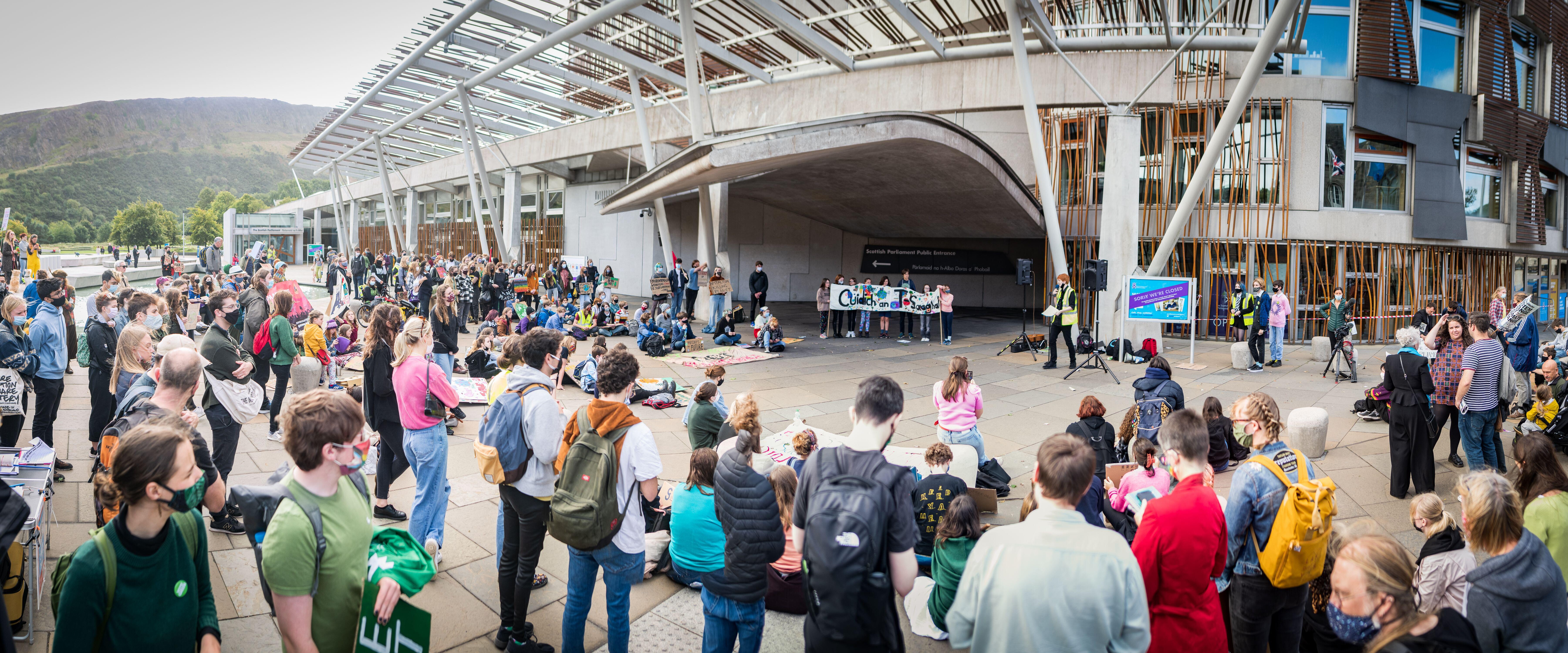Children and young people are revolting against a revolting world
It would be easy to dismiss the current wave of youthful climate activism as teenage rebellion – after all, idealistic student activism has a long history of sit ins, occupations and rowdy demonstrations.
But where older generations’ activism may have been motivated by idealism, or anger, for today’s young people the change in our planet’s climate represents much deeper-seated emotions of fear and anxiety.
Simply put, children and young people have a much bigger stake in the future than we do. Climate activism for them is self-preservation – a fight for their future homes, future families, and future selves.
The inevitable by product of dealing with self-preservation at such a young age is anxiety – with a majority of young people now reporting that climate change worries are ruining their mental health.
Researchers at Force of Nature, an educational community interest company, surveyed over 500 students in 52 countries, and found that four out of five young people experience hopelessness when thinking about climate.
Roughly the same number of students reported that the fear of climate change negatively impacts their mental health.
“Young people today have not created this reality; we’ve inherited it,” says Force of Nature’s March 2021 report, titled ‘The Rise of Eco-Anxiety’.
“And we’re told we are the last generation with a chance to save the fate of our planet.
“It should come as no surprise, then, that there is an epidemic of mental health problems.
“Eco-anxiety is on the rise, and young people seem to be some of the worst-affected. Research from 2019 shows that in the UK, 70 per cent of 18 to 24 year-olds were experiencing eco-anxiety - helplessness, anger, insomnia, panic and guilt.
“At Force of Nature, we’ve witnessed the same on a global scale. We’ve been talking to students in over 50 countries - from Tel Aviv through Jakarta; New York to Managua - and all of them have shared this existential dread that keeps them up at night.
“It has become clear that this is not a small, bothersome worry; this is not an uncomfortable thought to be pushed aside; this is a mental health crisis demanding our urgent attention, and action.
“This is true both of young people experiencing the direct impacts of climate change, such as flooding in Jakarta or fires in Australia, as well as young people for whom climate change is an anticipated threat.”
Fear is a powerful motivator, and people who work with children and young people have noticed a marked increase in climate change activism in younger generations.
“Children and young people have consistently raised climate justice as one of their biggest human rights concerns,” says Bruce Adamson, Children and Young People’s Commissioner Scotland.
“They have shown incredible leadership, challenging adults to do better and have acted as human rights defenders across Scotland and internationally.
“They have led climate justice movements in the streets, for example during school strikes, online, and in court.
“Children have increasingly been playing a vital role in shining a light on an issue that affects us all. They are standing up to power and demanding change.
“We have seen the climate strike movement grow from a small group of activists to become a huge, global campaign. It has been led by children and young people.
“They don’t have the same political or economic power as adults and are often excluded from decision-making, yet despite this, we see children and young people from across Scotland increasingly acting as human rights defenders on climate change on a local, national, and international level.
“They aren’t scared to highlight the connection between climate change and human rights. They know that climate change, pollution, and nature loss is directly and severely impacting a broad range of rights including the rights to adequate food, water, education, housing, health development, and even life itself.”
 Climate activist Greta Thunberg gives a speech at a Fridays for Future rally in Glasgow where the COP26 conference is happening
Climate activist Greta Thunberg gives a speech at a Fridays for Future rally in Glasgow where the COP26 conference is happening
Fear and hopelessness can go hand-in-hand with anger – and young people are revolting against an increasingly revolting world.
Following heat waves and wildfires during the Swedish summer of 2018 – a then-unknown ninth grader called Greta Thunberg refused to attend school until the 2018 general election on 9 September, in protest of Sweden’s contribution to climate change.
Thunberg sat outside the Riksdag – Sweden’s national legislature – everyday during school hours with a sign that read “skolstrejk för climate”, or “school strike for climate”.
Just before the general elections, Thunberg announced she would continue striking every Friday until Sweden reduced its emissions in line with the Paris Agreement – and a movement was born.
Thunberg coined the term ‘Fridays For Future’, the movement spread through schools like a wildfire, and on 15 March 2019 more than a million people demonstrated in about 2200 events worldwide, across 125 countries.
In Scotland, organisations such as the 2050 Climate Group have sprung up to encourage young people to take an active role in climate change movements.
“Strikes and protest are an incredibly powerful way to harness citizen power and collective action,” said Hannah Clark, a board member of the 2050 Climate Group.
“They are also a wonderful way to meet other activists, feel less alone in the fight for change, and find hope in the resistance and resilience of the people around you.
Now, to coincide with COP26, Fridays For Future Scotland are organising a school strike and demonstration on Friday 5 November.
The group plans on marching through Glasgow, from the Prince of Wales Bridge, down to Radnor Street, and across to George Square.
“The November COP26 will be held in Glasgow, with world leaders continuing to neglect our future,” reads campaign literature from Fridays For Future Scotland.
“World leaders will make decisions that they claim will save us all, keeping to the status quo of words and no actions.
“We must stand more united than ever to emphasize the present, ongoing nature of the climate crisis, and clamour for immediate, just, and concrete action steps from our world leaders.
“The current way of things has systematically marginalized billions of people around the world.
“With our call to #UprootTheSystem, we seek to address ecological and social crises at their roots by placing MAPA [the ‘Most Affected People and Areas’] at the centre of our struggle and struggling for a society that places people and planet over profit.
“Join us on Friday November 5th to tell them that enough is enough and we will fight for climate justice. It is time to #UprootTheCOP.”
The fire in the bellies of children and young people has not gone unnoticed by older generations of climate activists.
“In general, I’ve seen an increase in climate action throughout all of society, but young people in particular are raising their voices in a way that we hadn’t seen before a few years ago,” added Hannah Clark.
“I think it’s beginning to sink in for a lot of us that climate activism is, in fact, a fight for our lives.
“When we recognise that, it’s difficult not to scream and shout until someone with political power takes notice.”
 Members of the Children's Parliament present Queen Elizabeth II with some trees during a visit to the Edinburgh Climate Change Institute
Members of the Children's Parliament present Queen Elizabeth II with some trees during a visit to the Edinburgh Climate Change Institute
Behind the explosion of placards, banners and drums, children and young people have also been making their voices heard using more traditional routes – townhalls, councils and citizens’ assemblies.
From October 2020 to March 2021, just over 100 members of the Children’s Parliament, a charity that drives children’s participation in democracy, participated in Scotland’s Climate Assembly.
This was the first climate citizens’ assembly to involve children under the age of 16, and to capture the diversity of children’s views and experiences, the Children’s Parliament worked with children aged seven to 14 from ten schools across Scotland – representing different socioeconomic and cultural backgrounds.
As part of the programme, members of the Children’s Parliament were asked to describe how being included in deliberative democracy made them feel.
"When adults actually listen to children, it makes children feel confident,” said one 12-year-old from West Lothian.
“I also feel happy... because having children's voices included on climate change makes us realise that adults do care about our futures."
"The connection between adults and children means a lot... it can mean stronger ideas [on tackling the climate emergency],” said a ten-year-old from the Highlands.
"Through being involved in the Climate Assembly and other events with adult decision makers on the climate emergency, I've noticed that other adults around me at school and at home have been inspired by our work,” said a 13-year-old from West Lothian.
“They've changed their attitudes and perspectives on climate change in one year.”
For the people who work with children and young people, the fight against climate change is also a fight for their rights.
“Climate change is a human rights issue,” says Sophia Georgescu, on behalf of the Children’s Parliament.
“Any plan, solution or action to tackle climate change in Scotland must respond to the needs, and rights of everyone living here and this means listening to the diversity of views and lived experiences of Scotland’s citizens.
“Tackling climate change has been a key issue for children across Scotland since Children’s Parliament was founded 25 years ago.
“Children have repeatedly told us that they do not have the chance to voice their worries and ideas around climate change.
“This is especially true for children under the age of 14 years who are not normally a part of formal channels.”
 Participants at the Fridays for Future protest outside the Scottish Parliament in September
Participants at the Fridays for Future protest outside the Scottish Parliament in September
As we get older, we often acquire more of a stake in the society – and world – we live in: we buy property, we develop careers, and we have children of our own.
Today’s children and young people have a bigger stake in the world than we do – they simply have a lot more future to look forward to than the rest of us.
So what can older generations learn from children and young people, when it comes to combatting climate change?
“People have thought that adults are the guardians of the planet, and need to keep it safe for younger generations,” said Bruce Adamson.
“But that seems outdated as younger generations are telling us they want to be involved, they can stand up for human rights and don’t want to be stuck on the sidelines.
“They aren’t scared to demand change. Those in power have a duty to recognise, empower and protect young human rights defenders.”
“More than anything, I think young people are showing that imagining and achieving a different future for life on Earth is possible,” said Hannah Clark.
“If the current economic and political system has created climate catastrophe, then it needs to be replaced. It’s as simple as that.
“Youth visions for the future are full of hope for a more ecologically vibrant and socially just way of life, and I think these ideas need to be taken seriously.
“I worry about the tendency to dismiss critiques of capitalism or industrialisation because ‘that’s just the way it is’.
“If anything, younger generations are showing that it doesn’t have to be. And beyond that, we are taking action to create this new world.”
Holyrood Newsletters
Holyrood provides comprehensive coverage of Scottish politics, offering award-winning reporting and analysis: Subscribe